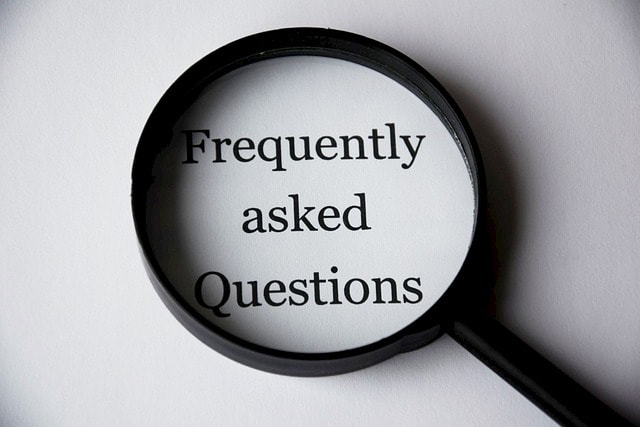What are Small Business Loans?
Small business loans are traditional financing options in which a lender disburses loan funds, which are repaid with interest over a defined term. The amount owed is added to the business’s debt. Lenders typically must follow specific rules and regulations regarding these loans.
Small businesses use loans for various purposes. They might need funds for equipment, inventory, or hiring staff. Some may want to expand their operations or improve marketing efforts. Here are some of the most common types.
Business term loans: Perhaps the most well-known option is the business term loan. These traditional loans provide a large sum upfront. The business repays the principal plus interest over a fixed term at a fixed interest. Companies can use the loan proceeds for various purposes, such as expansion, working capital, etc.
Business lines of credit: Another option is a business line of credit. This allows businesses to borrow up to a specific credit limit. They can take out money as needed and only pay interest on what they use. A business line of credit offers flexibility for unexpected expenses.
Equipment financing: Equipment financing is a type of small business loan specifically used to purchase new equipment or machinery. This type of financing allows businesses to acquire necessary assets without paying the full cost upfront, helping preserve cash flow. The equipment itself typically serves as collateral for the loan, making it a secured form of financing.
SBA loans: SBA loans, backed by the Small Business Administration, are also popular. They often have lower interest rates and longer repayment periods. However, the application process can be lengthy.
Working capital loans: Working capital loans help businesses cover daily expenses. This type of loan is crucial for managing cash flow. It ensures that small businesses can pay bills and employees on time.
Secured Business Loans vs Unsecured Business Loans
Secured and unsecured business loans differ significantly. Secured loans require collateral, like property or equipment. If the borrower fails to repay, the lender can claim the collateral. Unsecured loans do not need collateral but may have higher interest rates due to increased risk.
Small Business Loan Qualifications
Qualifications for small business loans vary by lender. Most lenders look at several factors:
- Credit score: A higher score improves the chances of approval.
- Time in business: Lenders prefer established businesses.
- Annual revenue: Steady income shows the ability to repay.
- Collateral: Secured loans require valuable assets.
What are the benefits and drawbacks of Small Business Loans?
Small business loans offer various advantages, such as providing essential funds for growth and unexpected expenses. They come with fixed repayment terms, making budget planning easier, and typically offer lower interest rates than other financing options. These loans can also help improve your business credit score and offer flexible borrowing amounts to suit specific needs.
However, there are drawbacks to consider. The application process can be time-consuming and require extensive paperwork. Repayment may pose challenges, especially if the business has irregular income. Collateral and personal guarantees are often necessary, risking assets and personal liability in case of default. Small business owners must carefully weigh the benefits and risks before taking out a loan.
Small Business Loan Pros & Cons
Pros:
- Fixed repayment terms help with budgeting.
- Lower interest rates compared to other financing options.
- Can build credit history for future borrowing.
- Flexible amounts available for different needs.
Cons:
- Lengthy application process with lots of paperwork.
- Potential fees that increase the overall cost.
- Risk of losing collateral if payments are missed.
- Repayment can strain finances during low-income periods.
What is a Business Cash Advance?
A business cash advance is a way for businesses to get quick money. This type of funding is often called a merchant cash advance (MCA). You may also see it listed as a credit card processing loan or credit card factoring. It allows businesses to receive cash in exchange for future sales.
Merchant cash advances are not loans in the traditional sense and don’t get added to a business’s debt. Instead, MCAs are business-to-business transactions where the merchant cash advance company purchases a percentage of future credit card sales with the advance.
Businesses usually work with a merchant cash advance provider, often called an MCA funder. They offer cash advances based on daily credit card transactions. The business agrees to pay back the advance through a percentage of future sales. This means repayment happens as sales occur, making it easier for companies with fluctuating income.
Several components make up a merchant cash advance.
Advance Amounts
First, there’s the advance amount, which is how much money a business can receive upfront. The amount of the cash advance depends on several factors:
- Daily credit card sales.
- Business history and performance.
- The overall health of the business.
Lenders look at these details to decide how much money to offer.
Factor Rates
Merchant cash advances use factor rates instead of interest rates. Factor rates determine how much the business will repay over time. They typically range from 1.1 to 1.5.
A factor rate of 1.3 means that if a business receives $10,000, it will repay $13,000 in total ($10,000 x 1.3 = $13,000). Factor rates are often more expensive than interest rates.
Term Length
Merchant cash advances typically have terms ranging from 3 to 24 months. The specific term length is often determined based on various factors, such as the amount borrowed, the repayment structure, and the financial health of the business seeking funding. It is essential for businesses to carefully consider the term length when taking out a merchant cash advance to ensure that they can comfortably meet the repayment schedule.
Holdback Rate
The holdback rate in MCAs refers to the percentage of daily credit card sales merchant cash advance lenders retain as repayment. This rate typically ranges from 10% to 30%, depending on the agreement between the merchant and the funder. The holdback rate allows flexible repayment based on the merchant’s daily sales volume, providing a convenient way to repay the advance without fixed monthly payments.
Early Repayment Penalty vs Discounts
Some MCA funders may offer early repayment discounts to incentivize borrowers to pay off their advances sooner. On the other hand, some funders may impose prepayment penalties to recoup lost interest. It is crucial for borrowers to fully understand the terms of their MCA agreement to avoid any unexpected fees or consequences when repaying the advance.
What are the benefits and drawbacks of Business Cash Advances?
Business cash advances offer quick access to funds, with approval often taking just a few days. This speed is beneficial for meeting urgent needs like buying inventory or covering unexpected expenses.
These advances provide flexibility by adapting to a business’s sales, with repayments coming from daily credit or debit card sales. MCAs typically have much lower approval criteria, often based on the business’s sales history, than the business owner’s creditworthiness.
However, drawbacks include high costs, with interest rates reaching 30% or more, potentially straining a business’s finances. The repayment method, directly from daily credit and debit sales, can lead to cash flow issues if sales fluctuate.
Hidden fees and less strict approval processes may result in businesses borrowing more than necessary or not fully understanding the terms. It’s crucial for businesses to carefully review all terms before agreeing to a merchant cash advance.
Merchant Cash Advance Pros & Cons
Pros:
- Fast access to funds to improve cash flow.
- Repayment fluctuates with sales rather than fixed payments.
- Easier to qualify than traditional business loans.
- Doesn’t get added to a business’s debt.
Cons:
- Factor rates are often more expensive than interest rates.
- Holdback rates can cut into profits.
- The merchant cash advance industry is less regulated than business loans.
- Potential for prepayment penalties.
How do Merchant Cash Advances differ from Business Loans?
Here are some of the vital differences between business cash advances and loans.
Amounts
Merchant cash advances offer smaller amounts compared to traditional business loans. A merchant cash advance typically provides funding between $5,000 and $1 million, but the exact amount depends on daily credit card sales.
Business loans can provide more significant sums. They often range from $10,000 to over $5 million, and the loan amount is based on the business’s creditworthiness and financial history.
Qualifications
Qualifications for a merchant cash advance are less strict. Lenders focus on daily credit card sales rather than credit scores. This makes it easier for businesses with poor credit to qualify.
Business loans require more documentation. Lenders look at credit scores, tax returns, business bank account statements, and business plans, so businesses need a solid financial background to qualify.
Repayment Structures
Repayment for merchant cash advances is different from business loans. With a merchant cash advance, repayments occur daily or weekly. They take a percentage of daily sales until the advance is paid off.
Business loans have fixed monthly payments. Borrowers know precisely how much they owe each month. This makes budgeting easier for many businesses.
Term Length
Merchant cash advances usually have shorter terms. Most advances are paid back within 6 to 18 months, which can appeal to businesses needing quick funds.
In contrast, business loans often have longer terms. They can last from one year up to 25 years. Longer terms mean lower monthly payments but more interest paid over time.
Collateral
Merchant cash advances typically do not require collateral. Lenders focus on future sales instead of assets. This reduces the risk for the borrower but increases the risk for the lender.
Business loans may require collateral, especially for larger amounts. Collateral can include property or equipment. If the borrower fails to repay, lenders can seize these assets.
Rates
Rates also differ significantly between the two options. Merchant cash advances use a factor rate system. This means borrowers pay back the advance plus a fee based on their sales volume.
Business loans usually have interest rates based on creditworthiness. These rates can be lower than those of cash advances. However, total repayment can be higher with a longer term.
Risks
Both options carry risks but differ in nature. Merchant cash advances can lead to high costs due to daily repayments and fees. Businesses may struggle if sales drop unexpectedly.
Business loans can place pressure on cash flow due to fixed monthly payments. Failure to repay can result in losing collateral and damage to credit ratings.
How do I decide between a Business Cash Advance or a Business Loan?
Here are some strategies to help you decide between a business cash advance or a loan.
Consider Your Needs
Business owners should first assess their needs. A business loan is ideal for large expenses, such as buying equipment or expanding operations. Loans often come with lower interest rates and longer repayment terms, making them more manageable for larger projects.
In contrast, a merchant cash advance suits businesses needing quick cash. This option provides funds based on future credit card sales. It offers flexibility in repayment. Payments adjust based on daily sales, which can ease financial pressure during slow periods.
Evaluate Your Financial Situation
Next, evaluate your financial situation. A loan may be better if a business has strong credit and steady revenue. Traditional lenders offer competitive rates for businesses with good credit history.
However, if the business struggles with credit issues, a merchant cash advance might be more accessible. Many providers focus on sales volume over credit scores. This means even businesses with less-than-perfect credit can secure funding.
Analyze Repayment Terms
Repayment terms are crucial in deciding between options. Business loans typically have fixed monthly payments. This structure helps with budgeting but can strain cash flow if sales dip.
Merchant cash advances allow for variable payments. They take a percentage of daily sales until the advance is paid off. This can be beneficial during seasons when sales fluctuate significantly.
Consider Timing and Urgency
Timing plays a significant role in this decision. If a business needs money quickly, a merchant cash advance is often faster to obtain. Funds can be available within days, unlike loans that may take weeks to process.
For long-term projects, a business loan is preferable. The lower interest rates and structured payments make it easier to manage over time.
Examples of when to choose a business loan include:
- Expanding into new locations.
- Purchasing expensive machinery.
- Investing in marketing campaigns for growth.
Examples of when to choose a merchant cash advance include:
- Covering unexpected expenses like repairs.
- Managing seasonal dips in sales.
- Funding short-term projects with immediate needs.
How do I apply for a Business Cash Advance or Loan?
You can apply for a small business loan or merchant cash advance through our lender network by following these steps:
Step 1 – Apply online in a few minutes: Use our simple online application to submit a request for business funding. If you need any help along the way, give us a call, chat, or email.
Step 2 – Get expert advice on loan options: An expert, knowledgeable account executive will walk you through all the fine details and requirements. This is to ensure you have all the info you need.
Step 3 – Finalize your application and get funded: Once your funding has been approved and closed, the lender sends the funds to your account so you can start using them to grow your business.
Frequently Asked Questions
Here are the most common questions about the difference between business cash advances and loans.
Are Merchant Cash Advances considered loans?
Merchant cash advances are not classified as traditional loans. They differ in several key ways. An MCA provides businesses with quick access to cash based on future sales. Instead of a fixed repayment plan, repayments are taken from daily credit card sales. This means businesses pay back the advance as they earn.
Are Business Loans or Cash Advances more costly?
The Annual Percentage Rate (APR) and the total repayment amount must be considered when comparing the costs of merchant cash advances and small business loans. When converting factor rate costs to the APR equivalent, MCAs typically have higher APRs than small business loans, making them more costly in the long run.
Additionally, merchant cash advances often involve fees and daily repayments, further increasing the overall cost for businesses. On the other hand, small business loans may have lower APRs and more predictable repayment terms, making them a more cost-effective option for many businesses.
Is it easier to qualify for a Merchant Cash Advance or Business Loan?
Qualifying for a merchant cash advance is often simpler than qualifying for a traditional business loan. Lenders look at different criteria for each option. MCAs mainly consider your business’s daily credit card sales. They want to see consistent cash flow. This makes it easier for many businesses, especially those with lower credit scores.
In contrast, business loans require more documentation. Lenders check your credit score, revenue, and time in business. Many banks need at least two years of operating history. They also ask for tax returns and financial statements. This process can take weeks or even months.
Is it ever a good idea to use a Merchant Cash Advance?
Despite the risks involved, an MCA can be a good idea for businesses that need quick access to capital and have a steady stream of credit card sales. In situations where a traditional bank loan is not an option or the business needs immediate funds for opportunities like inventory purchases or equipment upgrades, an MCA can provide the necessary funds without the lengthy approval process of a bank loan. However, it’s essential to carefully consider the high fees and repayment terms associated with MCAs before deciding if it’s the right choice for your business.
Does a Merchant Cash Advance hurt credit?
Merchant cash advances typically don’t affect credit directly. Most MCA funders conduct a soft credit pull when you apply, which won’t affect your credit. Some may not check your personal credit score at all. However, a merchant cash advance company may use a hard credit inquiry, so ensure you check their credit check policy before applying.
In addition, merchant cash advance companies typically don’t report MCA activity to the major credit bureaus because they are not traditional loans. However, an MCA can strain cash flow, indirectly leading to missed payments that could affect credit. If your business defaults on the MCA, there could be financial consequences that negatively impact your credit.
Is a Small Business Loan or Cash Advance better for Bad Credit?
Regarding bad credit, a merchant cash advance may be more accessible than a small business loan since it is based on future credit card sales rather than credit history. However, bad credit business loans are also an option for those looking for traditional financing with less stringent credit requirements. It’s important to carefully consider all options and choose the one that best fits your business’s needs and financial situation.
The Difference Between Business Cash Advances and Loans – Final Thoughts
Understanding the differences between business cash advances and loans is crucial for making informed financial decisions. While both options provide funding, they vary in terms of repayment structure, cost, and eligibility requirements. Businesses must carefully assess their needs and financial situation to choose the option that best suits their circumstances and goals.
Contact us if you have more questions about the differences between MCAs and business loans or to apply for a small business loan. Our alternative funding experts can help you find the best funding options for your business needs and credit score.




















